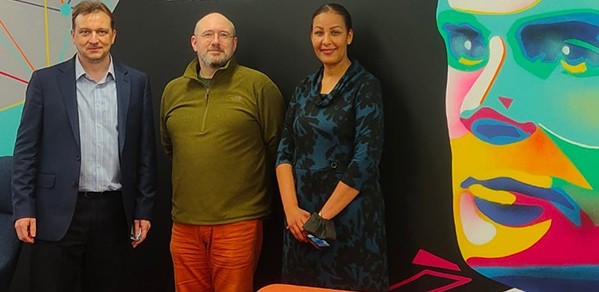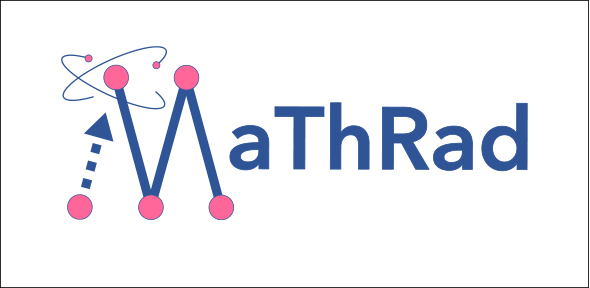
Cambridge engineers will join mathematicians and medical physics experts in a new five-year research programme looking at radiation transport modelling, bringing together the most modern theories and practical application needs in energy, space and health.
This programme offers a unique opportunity to bring together the nuclear engineering and theoretical mathematics communities to revive the much-needed research in the area of radiation transport, at a time when the world struggles with issues of climate change and security of energy supply.
Professor Eugene Shwageraus
Radiation transport modelling sits at the heart of the design, regulation and operation of some of the most important nuclear technologies for the 21st century, including the building of new fission and fusion reactors, decommissioning old ones, cancer diagnostics and therapy, and opening up new possibilities in space technologies through, for example, the development of mini reactors as a power source or designing cosmic radiation shielding for space exploration missions.
The £7 million EPSRC-funded programme titled Mathematical Theory of Radiation Transport: Nuclear Technology Frontiers (MaThRad), will be led by the University of Cambridge, University of Bath and the NHS, and will involve 26 partners from industry, academia, national labs and international organisations. Postdocs will also benefit from six-month internships with industrial partners.
Accurate prediction of how radiation interacts with surrounding matter is based on modelling, with many of the existing methods dating back decades. But now, through the MaThRad programme, a new generation of researchers will work at the interface of mathematics, engineering, healthcare and industry to improve our understanding of how radiation travels through reactor components or human tissues.
The researchers will combine modern mathematical methods from probability theory, advanced computational algorithms based on the Monte Carlo method and inverse problems to develop novel approaches to more accurate and computationally efficient radiation transport modelling. Together, they will develop predictive models with quantifiable accuracy and software prototypes ready for real-world implementation in the energy (nuclear fission, fusion, decommissioning and waste management), healthcare (radiation treatment planning, dose delivery, imaging and diagnostic techniques) and the rapidly developing space nuclear industries.
Central to the programme, which begins in September 2022, will be unique software developed by the Department of Engineering, called Stochastic Calculator Of the Neutron transport Equation (SCONE). Designed with a focus on modifiability and ease of learning, the software has been used by undergraduate as well as postgraduate students studying Monte Carlo methods and is suited to the exploration of new ideas.
Eugene Shwageraus, Engineering lead for MaThRad and Professor of Nuclear Energy Systems Engineering at Cambridge, said SCONE will allow for fast prototyping and the testing of ideas.
“Many of the existing radiation transport methods were pioneered in the UK in the early days of nuclear power. Unfortunately, these activities have been declining in the last few decades,” he said. “This programme grant offers a unique opportunity to bring together the nuclear engineering and theoretical mathematics communities to revive the much-needed research in the area of radiation transport. The research is particularly timely as the world struggles with issues of climate change and security of energy supply.”
Professor Shwageraus will be joined in the programme by Geoff Parks, Professor of Nuclear Engineering and Head of the Computational Design Group in the Cambridge Engineering Design Centre.
“The computational design process depends crucially on the speed and accuracy of the computational models used to evaluate candidate designs,” said Professor Parks. “The developments planned within the MaThRad programme offer exciting opportunities to improve both the design process and the designed product in a wide range of application areas.”


